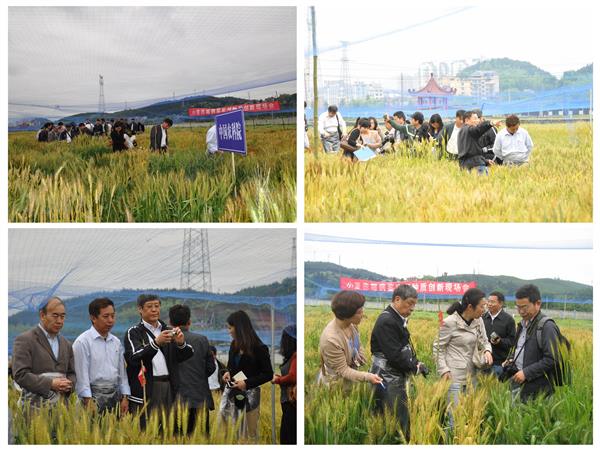Meeting on FHB Identification and Germplasm Enhancement Held in Jianyang, Fujian
Date:2014-08-03Author:AdminSource:ICS
A Meeting on Fusarium Head Blight (FHB) Identification and Germplasm Enhancement was held on April 22, 2014 in Jianyang, Fujian Province. It was hosted by the Institute of Crop Sciences of Chinese Academy of Agricultural Sciences (ICS-CAAS) and organized by Nanping Institute of Agricultural Sciences. More than 40 participants attended the meeting, including experts from Ministry of Agriculture (MOA), CAAS, ICS, as well as wheat breeding experts from the agricultural academies of 11 provinces and cities in the middle and downstream Yangtze River, Huang-Huai River Basin, southwest and northeast areas.
Mr. Jia Jizeng, Research Fellow of ICS led the delegates to the FHB identification station where innovative disease-resistant germplasm with excellent agronomic traits and new anti-disease sources unlike Sumai No. 3 selected from a group of domestic and international wheat germplasm were demonstrated. Participants also observed carefully the identification nursery of domestic new wheat varieties. Interested in these disease-resistant germplasm, they hope to strengthen cooperation in the future and actively promote anti-disease wheat breeding.
Fusarium head blight (FHB) is a major disease threatening food security and food safety in
Participants called for a collaborative research group and research projects on wheat scab resistance gene discovery and breeding and the technical system and development platform for the research. Jianyang is recognized as a rare natural base for scab identification. Jianyang Agricultural Science Institute has been committed to the disease identification for decades, so a national station is expected to build on this.

